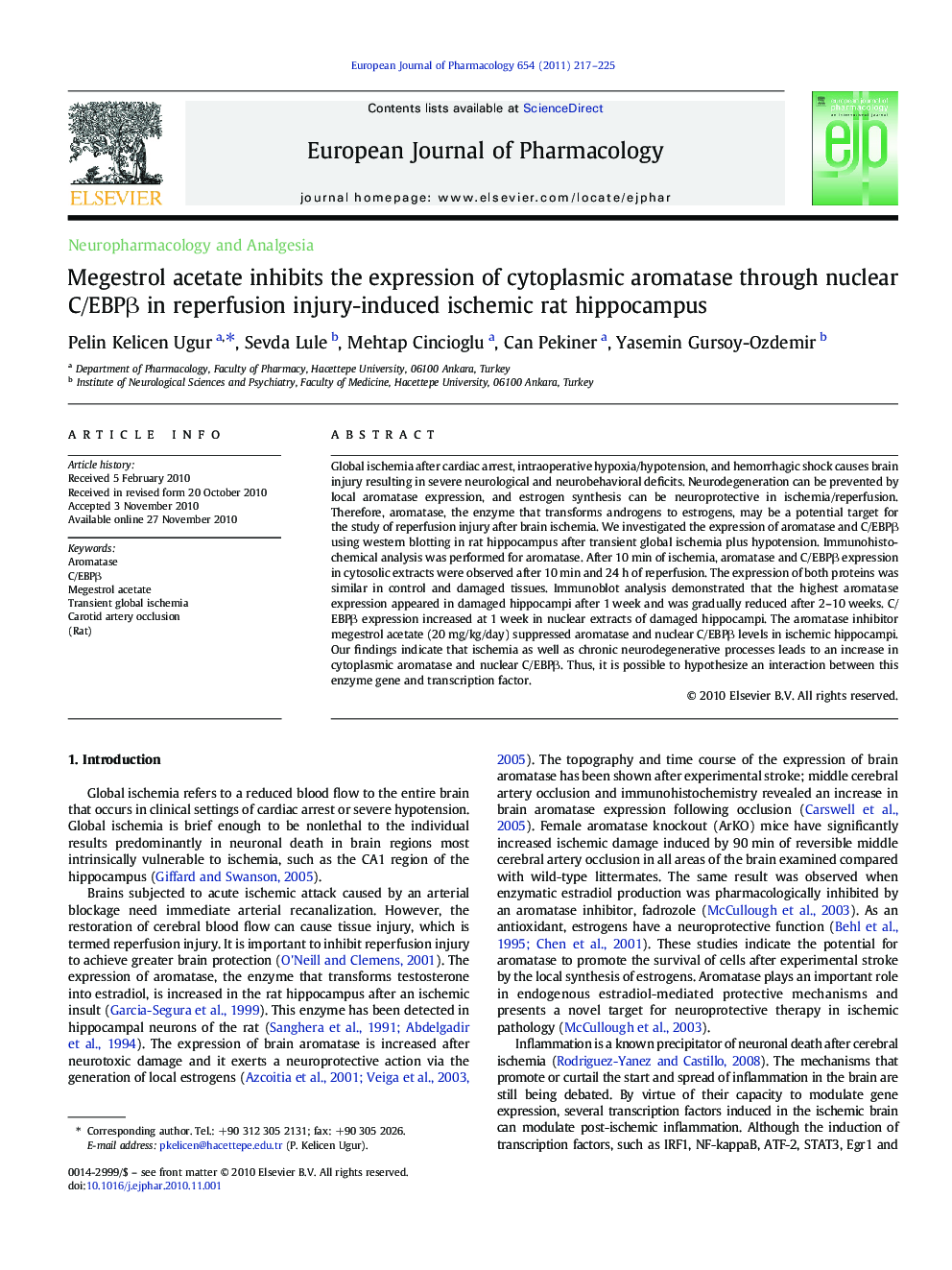| Article ID | Journal | Published Year | Pages | File Type |
|---|---|---|---|---|
| 2532969 | European Journal of Pharmacology | 2011 | 9 Pages |
Global ischemia after cardiac arrest, intraoperative hypoxia/hypotension, and hemorrhagic shock causes brain injury resulting in severe neurological and neurobehavioral deficits. Neurodegeneration can be prevented by local aromatase expression, and estrogen synthesis can be neuroprotective in ischemia/reperfusion. Therefore, aromatase, the enzyme that transforms androgens to estrogens, may be a potential target for the study of reperfusion injury after brain ischemia. We investigated the expression of aromatase and C/EBPβ using western blotting in rat hippocampus after transient global ischemia plus hypotension. Immunohistochemical analysis was performed for aromatase. After 10 min of ischemia, aromatase and C/EBPβ expression in cytosolic extracts were observed after 10 min and 24 h of reperfusion. The expression of both proteins was similar in control and damaged tissues. Immunoblot analysis demonstrated that the highest aromatase expression appeared in damaged hippocampi after 1 week and was gradually reduced after 2–10 weeks. C/EBPβ expression increased at 1 week in nuclear extracts of damaged hippocampi. The aromatase inhibitor megestrol acetate (20 mg/kg/day) suppressed aromatase and nuclear C/EBPβ levels in ischemic hippocampi. Our findings indicate that ischemia as well as chronic neurodegenerative processes leads to an increase in cytoplasmic aromatase and nuclear C/EBPβ. Thus, it is possible to hypothesize an interaction between this enzyme gene and transcription factor.
